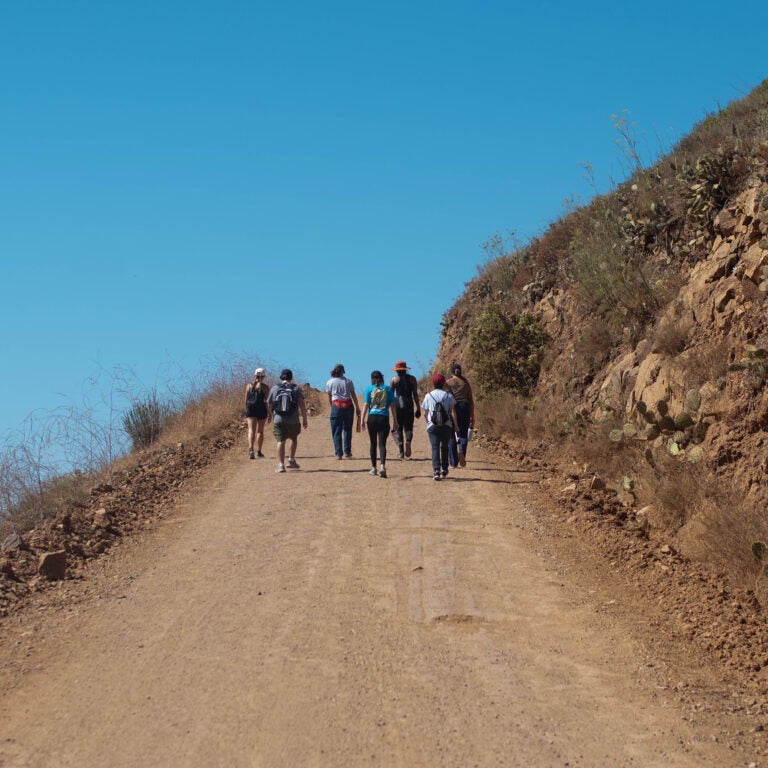Immerse Yourself in Sustainability
The Wrigley Institute Julymester is a unique chance to help the planet while connecting with like-minded peers around the theme of sustainability!
Earn a semester’s credit in just four weeks as you explore sustainability in our planet’s key systems: water, soil, air, and energy. All courses and activities take place in our unique, interdisciplinary learning environment at the Wrigley Marine Science Center on Catalina Island.
Applications for Julymester 2025 are now open.
The application remains open past the April 16 priority deadline for all classes. The final deadline is TBA. Apply as soon as possible to secure your seat.
Julymester 2025 Dates: Monday, July 14, 2025 – Friday, August 8, 2025
How it Works
All Wrigley Institute Julymester students complete a month-long living-learning experience on Catalina Island. In addition to participating in their core classes, students engage in interdisciplinary activities designed for the whole group. These include problem-solving sessions, field research, recreation, and special events designed to train students in environmental leadership.
For more information about Julymester generally, read our FAQ, or contact Hannah Maryanski Kiszla (maryansk@usc.edu). For information about specific Julymester courses, see the course list at the bottom of this page.

Julymester Courses
Julymester 2025 is open for registration. See the course descriptions below for more information about learning opportunities. Each course carries a full semester of credit for one month of study. Students may enroll in only one course.
Dates: Monday, July 14, 2025 – Friday, August 8, 2025
Cost: Julymester courses are 4 units and are part of the fall semester course load and tuition.
Tuition is charged for this program at the unit rate for the semester until the 18-unit limit is reached. If you enroll in more than 18 units between Julymester and the fall semester, you will be charged overload tuition.
Most financial aid is transferable to Julymesters. However, we strongly encourage you to contact the USC Financial Aid Office to confirm the details of your aid package.
-
Instructor: Scott Applebaum (sappleba@usc.edu)
Both water and soil are integral to human livelihood, and both are currently under threat. This class presents an overview of the issues related to water and soil sustainability, including soil development and management, the hydrologic cycle, the cycling of nutrients through both soil and water, soil and water pollution, and food security related to soil and water issues.
-
Instructor: Andres Sanchez (sanchez.a@usc.edu)
Everyone who considers themselves an environmentalist has opinions on which sources of energy are “bad” and which are “good,” but what does that mean? How are these forms of energy harnessed by people, especially in the U.S., and how exactly are they good or bad? This course explores those questions, considering “cradle-to-grave” issues ranging from the extraction of energy resources from the environment to pollution from emissions and disposal of wastes.
-
Instructor: Katharine Ogle (kathario@usc.edu)
This course is designed to immerse students in the practice and discussion of creative writing in a marine context. For four weeks, we will live and write on Catalina Island. Classwork includes but is not limited to: whale-watching, tidepooling, poetry recitations, guest lectures from professional scientists and poets, film screenings, workshops, and generative writing exercises. We spend about half of our time “in the field,” gathering observations and notes for our creative work, and the other half discussing craft, process, and product. Readings are designed to supplement our writing practice by generating questions about the interdisciplinary capacity of language and written work as it relates to marine science, ethics, environmental conservation, and art.